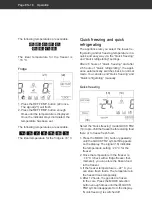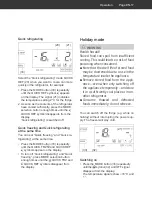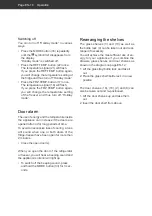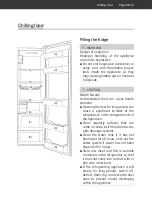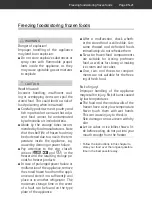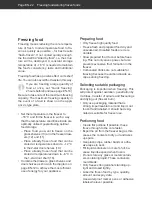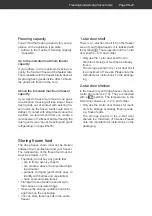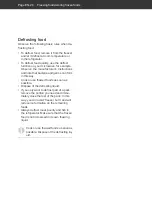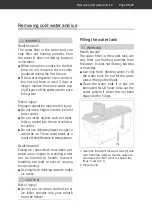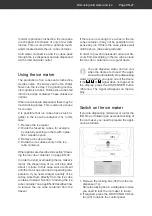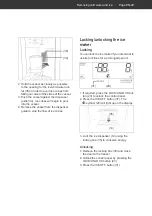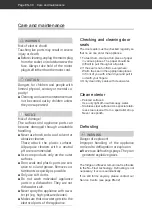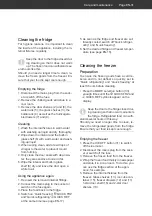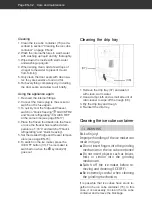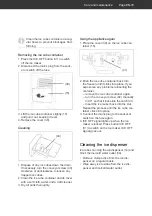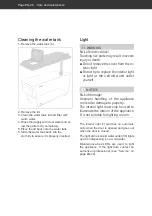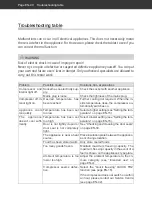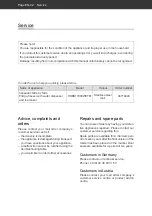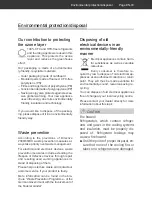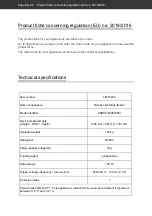
Care and maintenance
Page EN-30
Care and maintenance
WARNING
Risk of electric shock!
Touching live parts may result in severe
injury or death.
■
Before cleaning, unplug the mains plug
from the socket or isolate/unscrew the
fuse. Always take hold of the mains
plug itself rather than the mains cord.
CAUTION
Dangers for children and people with
limited physical, sensory or mental ca-
pacity!
■
Cleaning and user maintenance must
not be carried out by children unless
they are supervised.
NOTICE
Risk of damage!
The surfaces and appliance parts can
become damaged through unsuitable
handling.
■
Never use harsh, soda, acid, solvent or
abrasive cleaners.
These attack the plastic surfaces.
All-purpose cleaners with a neutral
pH are recommended.
■
Use care products only on the outer
surfaces.
■
Door seals and plastic parts are sen-
sitive to oil and grease. Remove con-
taminants as quickly as possible.
■
Only use soft cloths.
■
Do not wash individual appliance
parts in a dishwasher. They are not
dishwasher-safe.
■
Never spray the appliance with a wa-
ter jet (e.g. high-pressure cleaner).
■
Make sure that no water gets into the
electrical parts of the appliance.
Checking and cleaning door
seals
The door seals must be checked regularly so
that no air can enter the appliance.
1. To test them, clamp a thin piece of paper
in various places. The paper should be
difficult to pull through at all points.
2. If the seal is not uniform everywhere:
Warm the seal in the appropriate places
in front of you with a hair dryer and pull it
out with your fingers.
3. Only clean dirty seals with clean water.
Clean exterior
– Painted surfaces:
Use only light pH-neutral soapy water.
– Stainless steel surfaces: Use special stain-
less steel cleaner from a specialist shop.
Never use polish.
Defrosting
WARNING
Danger of explosion!
Improper handling of the appliance
can lead to defl agration or explosion.
■
Never use defrosting sprays. They can
generate explosive gases.
The fridge and freezer remain ice-free thanks
to the No-Frost technology. Defrosting is not
necessary; it occurs automatically.
If ice still forms anyway, please contact our
Service Centre (see page EN-42).

